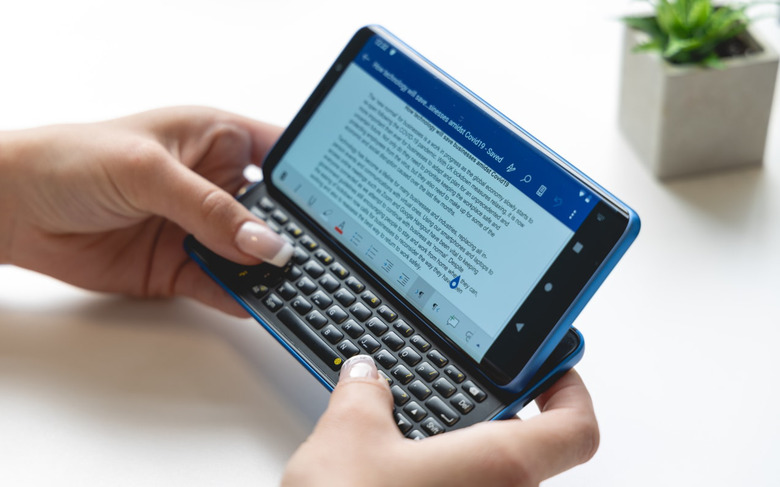F(x)tec's Pro1-X QWERTY Smartphone Delayed By Chipset Change
The path to niche smartphone nirvana is tricky, something backers of the F(x)tec Pro1-X QWERTY Android are discovering as new delays and spec changes hit the unusual slider. Revealed back in late 2020, and going on to raise more than $1m in crowdfunding, the handset promises a return to a form-factor the mainstream has abandoned, with a slide-out QWERTY keyboard behind the touchscreen.
Those who want a physical keyboard aren't exactly spoiled for choice right now in the smartphone space. With its design reminiscent of old Nokia classics like the E7, only with a choice of OS including Android, LineageOS, and Ubuntu Touch, not to mention a much more up-to-date spec sheet, it's no surprise that the F(x)tec Pro1-X got attention.
Unfortunately the path from crowdfunding to production is a tricky one, as other startups have discovered. F(x)tec now says it'll miss its March 2021 delivery estimate, pushing it back to August 2021 instead. The cause, the company says, is Qualcomm no longer being able to supply the chipsets initially intended to power the Pro1-X.

The plan had been to use the Snapdragon 835. That wasn't the flagship of Qualcomm's 800-Series even when the Pro1-X was first announced, but it meant F(x)tec could get the SoC at a more affordable price. Since then, however, the company has been informed that it's end-of-life, and so cannot be delivered from suppliers.
Instead, the Pro1-X will use the Snapdragon 662, launched in 2020. "We explored a variety of chipsets from the 2019 and 2020 range and took into consideration," F(x)tec explained to backers in an Indiegogo update, Liliputing reports, "the performance of the SoC, cost of redesign work and the time to integrate into the existing Pro1-X design, as well as longevity in terms of updates because we received numerous comments about the concern for ongoing Android updates with the SD835 chipset."
On the plus side (beyond the company actually being able to build the phone) there's longer official security support for updates, and it means Android 11 out of the gate for those who buy their Pro1-X with that OS. Battery life should be better too, thanks to lower power consumption, and there's WiFi 6 support, Bluetooth 5, WiFi calling handover between LTE and WiFi, and support for newer, more capable camera sensors.

On the downside, though, F(x)tec concedes that there'll be a performance hit of some degree. Exactly how much remains to be seen. Design work is apparently underway to rework the PCBA for the new chipset; that process, plus testing, explains the 4-6 month delay in shipping estimates. It also gives time for Ubuntu Touch OS and Lineage OS revisions to work properly with the Snapdragon 662.
What's proving controversial among backers is the decision not to go with a Snapdragon 765 or 865 chipset. F(x)tec says that they'd require a complete redesign of the phone's antenna, since they're 5G-based. "By choosing the SD662," the company says, "we only need to redesign the chipset/schematics and so the layout of components and connectors will remain exactly the same."
The reality is that building a new hardware product in the electronics industry is a tough challenge. Even with delays, if F(x)tec manages to ship the Pro1-X to backers it'll have achieved something many high-profile crowdfunding "successes" failed to do.
